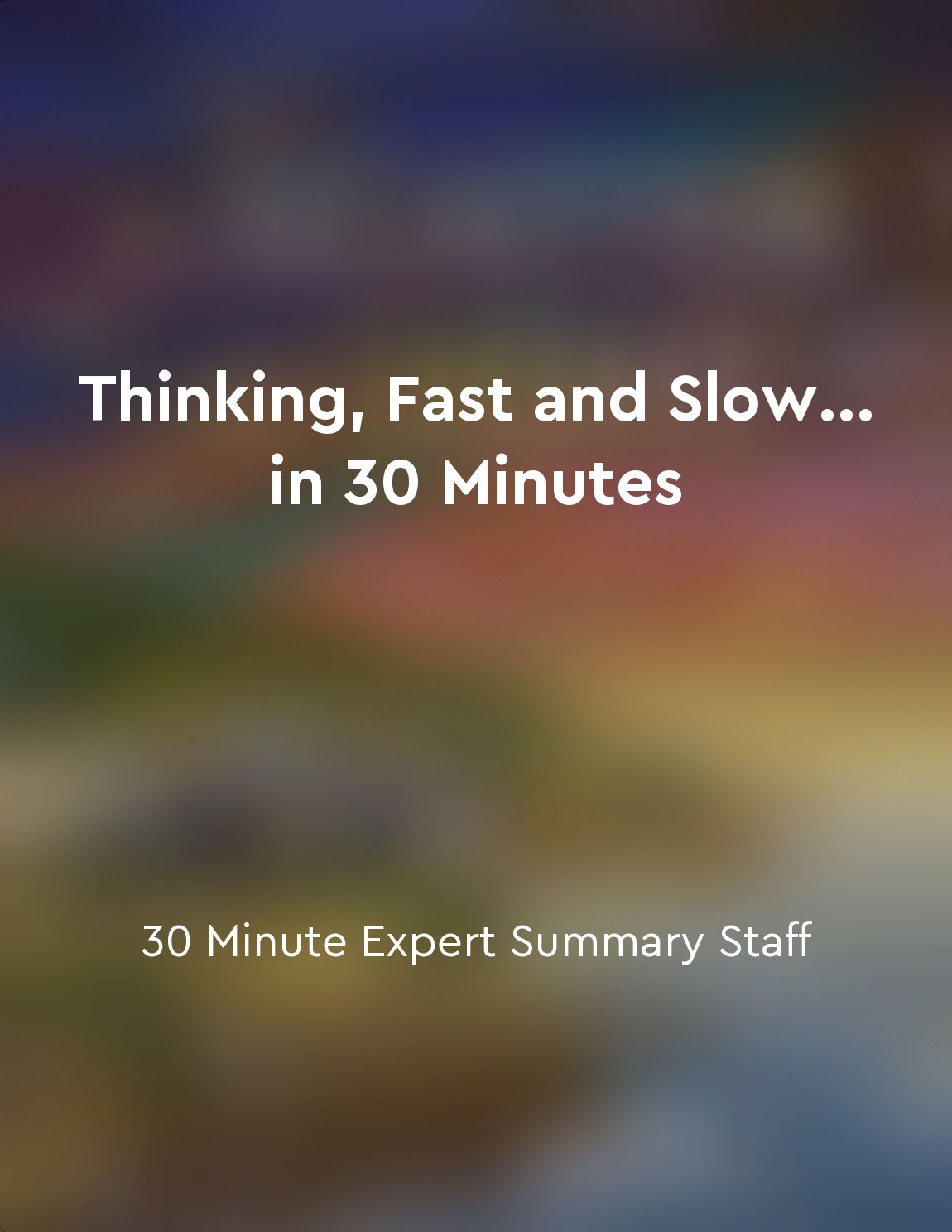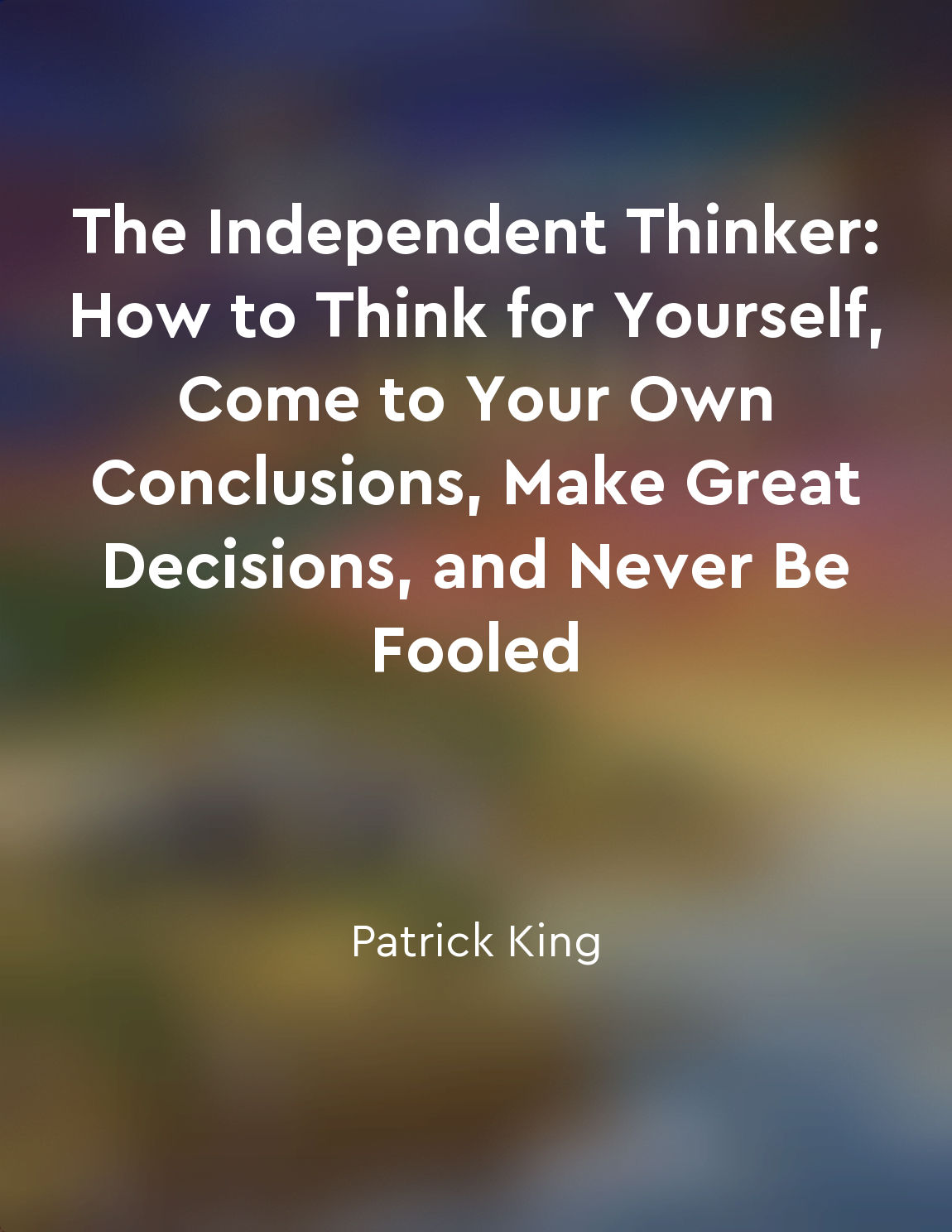Audio available in app
Anchoring bias influences decision making from "summary" of Thinking Fast and Slow by Book Summary
Anchoring bias is a cognitive bias that influences decision making by relying too heavily on the first piece of information encountered when making decisions. This initial piece of information, the "anchor," can greatly impact subsequent decisions and judgments. Anchoring bias can lead individuals to make decisions based on this initial anchor, even if it is irrelevant or misleading. Anchoring bias can be seen in various decision-making scenarios, such as negotiations, pricing, and problem-solving. In negotiations, the initial offer or proposal can serve as an anchor, shaping the course of the negotiation and the final outcome. Similarly, in pricing, consumers may be influenced by the initial price they see, anchoring their perception of the product's value. In problem-solving, individuals may be anchored to a particular solution, even if it is not the most effective or logical choice. Anchoring bias can be particularly powerful because it operates at a subconscious level, influencing decisions without individuals being aware of it. This bias can lead to suboptimal decisions, as individuals may fail to consider alternative options or adjust their judgments based on new information. By understanding anchoring bias and its impact on decision making, individuals can become more aware of their own cognitive biases and make more informed choices. To mitigate the influence of anchoring bias, individuals can try to consciously consider multiple sources of information, question their initial assumptions, and seek out alternative perspectives. By actively challenging the initial anchor and considering a range of possibilities, individuals can make more rational and objective decisions. Awareness of anchoring bias is key to improving decision-making processes and avoiding the pitfalls of cognitive biases.Similar Posts
Strive for clearer thinking
Strive to think clearly. It sounds obvious, but it is easier said than done. Our minds are naturally lazy, and our thoughts are...

Confirmation bias reinforces existing beliefs
Confirmation bias is a cognitive bias that affects how we process information and form beliefs. Our tendency to seek out inform...
Taking responsibility for our financial choices
Taking responsibility for our financial choices means acknowledging that we are accountable for the decisions we make regarding...
Tradeoffs are inevitable in decision-making
In any decision-making process, there are always tradeoffs that must be taken into account. These tradeoffs are inevitable beca...

Autopilot mode is energyefficient
When we talk about the brain's autopilot mode being energy-efficient, we are referring to the brain's ability to perform tasks ...
Robert Solow's research on economic growth earned him a Nobel Prize in Economics
Robert Solow, a brilliant economist, made a groundbreaking contribution to the field of economics through his research on econo...
Knowing what we want makes choosing easier
Knowing what we want can simplify the decision-making process by narrowing down our options. When we have a clear understanding...
The brain craves novelty and unique experiences
The brain is a complex organ that constantly seeks new and unique experiences to stimulate its reward system. This craving for ...
We often make decisions based on social comparisons
When faced with decisions, we tend to look to others around us, comparing ourselves to them in order to determine what to do. T...

Take ownership of your beliefs
Taking ownership of your beliefs means that you are responsible for what you believe in. It means that you have carefully exami...

